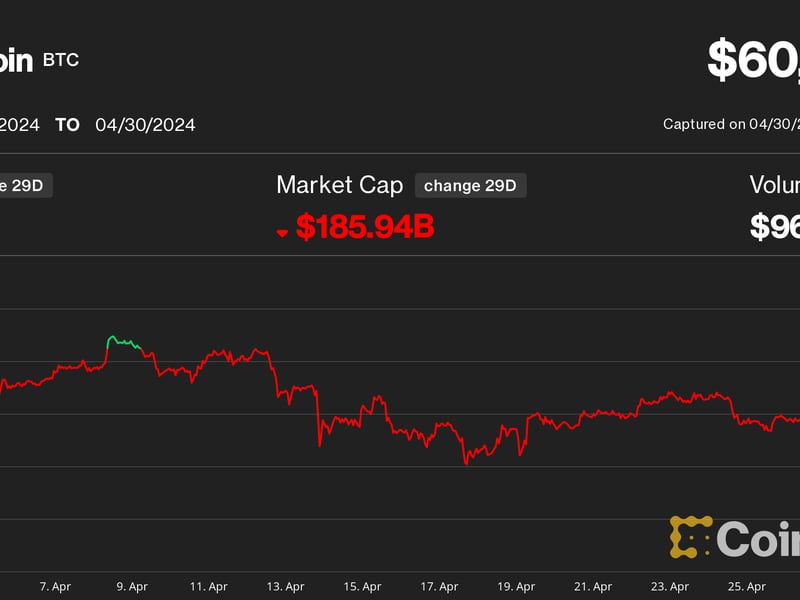China’s Currency Woes to Weigh on Bitcoin: Crypto Observer
/arc-photo-coindesk/arc2-prod/public/LXF2COBSKBCNHNRE3WTK2BZ7GE.png)
China is facing renewed currency depreciation as the lingering threat of deflationary economic nosedive, and property market malaise has foreign investors pulling capital out of the country.
The latest measures taken by Beijing to address the issue present a downside risk to bitcoin (BTC) through the foreign exchange channel, according to one observer.
The tightly controlled Chinese yuan (CNY) has declined 1.39% against the U.S. dollar, with its offshore Hong Kong version, CNH, registering a 1.25% drop. China’s benchmark equity index, the Shanghai Composite, has dropped over 7% to its lowest since March 2020, according to data from the charting platform TradingView.
The People’s Bank of China (PBOC) loosely pegs CNY’s value to a basket of 24 currencies through a managed-float system, allowing the home currency to fluctuate 2% on either side of the daily fix or the reference point.
On Monday, China’s state-owned banks sold U.S. dollars onshore while tightening liquidity in the offshore foreign exchange market to support the yuan, according to Reuters. Hong Kong’s offshore yuan one-week CNH Hong Kong Interbank Offered Rate – a gauge of offshore yuan liquidity conditions -rose to 4.95045%, the highest since Sept. 26.
Such measures could lead to broad-based USD strength, tighter financial conditions worldwide, and investors scaling back exposure to risky assets like bitcoin and technology stocks.
That’s because when the PBOC sells U.S. dollars onshore to support the yuan, it purchases the USD against other currencies to keep the greenback’s proportion in its foreign exchange reserves stable. Other things being equal, the intervention has the potential to lift the dollar index (DXY), which tracks the greenback’s value against majors.
Bitcoin is known to be inversely correlated to the USD. The cryptocurrency Q4 2023 surge of 50%, widely attributed to the spot ETF optimism, came as the dollar index fell by 4.5%.
“Major state banks were seen selling dollars today to prop up the Yuan and curtailed lending in order to tighten Yuan liquidity and make it more expensive to short the currency. This typically feeds back into broader dollar strength as dollars are bought back against other currencies to maintain FX reserve ratios,” David Brickell, head of international distribution at Toronto-based crypto platform FRNT Financial, told CoinDesk in an interview.
“China is incentivized to keep a lid on BTC to maintain a relative veil of currency stability and discourage capital flight. Past episodes when the Yuan has come under pressure have coincided with BTC underperformance,” Brickell added.
The dollar index has already gained 1.8% this month. Bitcoin, meanwhile, has dropped 4% to $40,500, having tapped highs near $49,000 early this month.








